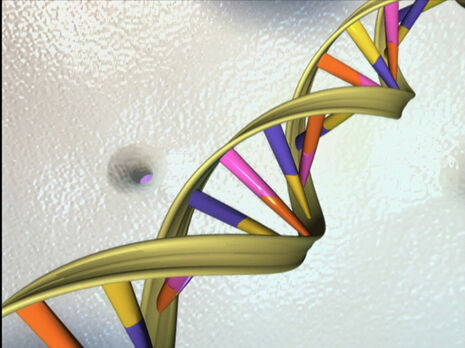Neuropop: Brains left, right, and centre
Joy Thompson explores the biology behind politics

US election drama is once again in full swing. The presidential debate has been and gone, pundits are arguing, and the tension increases with every poll. Amid the rush, political scientists and psychologists have been seeking to explain what drives us to vote liberal or conservative – and why we are so stubborn about it.
Political views can certainly be unshakeable. Imagine two people arguing about an emotive issue: each tries to prove they’re right, but rarely manages to convince the other. We also speak off-handedly of ‘inheriting’ our beliefs from those who helped shape them. But is this brainwashing or biology? As it turns out, biology may be more important than we think, and several studies suggest that even our political leanings may be influenced by our genes.
It’s also true, though, that the ‘Make America Great Again’ gene has not been discovered, and probably never will be. On an evolutionary timescale, political debates are such a recent invention that it doesn’t make sense to have specific genes encoding our ballot-box output. Instead, it’s more likely that our genetic inheritance shapes our collection of personality traits, and that these in turn influence our political views. This is the increasingly popular hypothesis of ‘genopolitics’, which periodically turns up in journals ranging from Nature all the way through to the science pages of the Economist.
A decade’s worth of psychological research seems to agree. In 2005, for instance, political scientists Hibbing and Alford analyzed the political opinions of 300,000 identical and fraternal twins. The results, published in American Political Science Review, were startling. Identical twins were more likely than fraternal twins to give the same responses for every political question on the test! Since identical twins share all their genetic material, while fraternal twins share only half, this was a tantalising correlation between genetic inheritance and political beliefs. (It’s still one to be interpreted with caution, though; in twin studies, it’s notoriously difficult to control for extraneous factors.)
So much for DNA, but do politics and personality traits match up? A large-scale 2003 survey in Psychological Bulletin, by John Jost and colleagues, suggests that they do. In this study, conservatives tended to score higher on measures of dogmatism, intolerance of ambiguity and need for order. (Intriguingly, they were also more likely to have neat and organised living spaces!) Liberals, in contrast, were more open to new experiences and change. Jost concluded that the differences between left and right could stem from our underlying psychological make-up.
Personality could thus be the missing link between genetics and political stance. Take, for instance, the ‘Big Five’ model of personality used by many psychologists. The big five traits are openness, conscientiousness, extroversion, agreeableness and neuroticism – and several studies have now shown that they are all moderately heritable. (30 to 50 per cent of the variation in these traits can be traced to genetic differences, depending on the study.) Most importantly, two of the Big Five traits associate closely with political leanings: liberals have significantly higher openness scores than conservatives, while conservatives score higher for conscientiousness. Jost’s conclusions were also consistent with this overall. In short, psychologists and political scientists agree with the old truism that conservatives resist change while liberals embrace it.
So what does this mean for political debate? Political tendencies might be written in our DNA, but it doesn’t mean that the energy we spend arguing is wasted. Certainly it would be folly to stop all protests on the mere assumption that because presidents cannot change their genes, they cannot change their policies. Public opinion and policy do alter over time, and without vigorous debate the change would be far slower… but that could just be the writer’s liberal genotype talking.
 Comment / Anti-trans societies won’t make women safer14 November 2025
Comment / Anti-trans societies won’t make women safer14 November 2025 News / Controversial women’s society receives over £13,000 in donations14 November 2025
News / Controversial women’s society receives over £13,000 in donations14 November 2025 News / John’s rakes in £110k in movie moolah14 November 2025
News / John’s rakes in £110k in movie moolah14 November 2025 Fashion / You smell really boring 13 November 2025
Fashion / You smell really boring 13 November 2025 Music / Three underated evensongs you need to visit14 November 2025
Music / Three underated evensongs you need to visit14 November 2025









